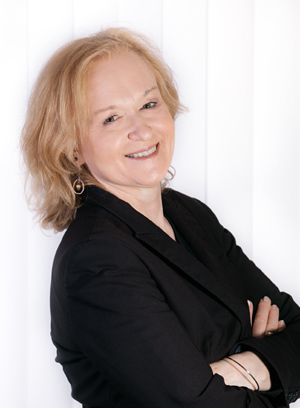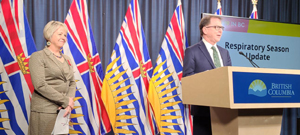
Thursday April 6, 2023 | VICTORIA, BC [Updated April 22, 2023]
by Mary P Brooke, B.Sc. | Island Social Trends
The World Health Organizations’s COVID pandemic may be officially over soon, says Provincial Health Officer (PHO) Dr Bonnie Henry.
And using a new test for the presence of SARS-CoV-2 in wastewater, in March 2023 the BC Centre for Disease Control Public Health Lab has found that levels were stable or decreasing at all sites.
As well, the overall trend with COVID infections is that people are getting less sick, hospitalized less, and dying less often from COVID-19.
“The COVID-19 pandemic has been a challenging time for everyone, and the people of British Columbia have shown incredible resilience and dedication in their efforts to combat the virus,” said Dr Henry today.
Things that might stick:
But Dr Henry hopes a few important things stick for people — like choosing to fist bump instead of shaking hands.
Health Minister Adrian Dix says he hopes the many public health lessons learned in the past three years will remain active for British Columbians. Both he and Dr Henry emphasized staying home when feeling unwell and continuing to wash one’s hands.
As well as using one’s common sense about when to wear a mask, and for people to be patient and kind to others if people choose to wear a mask or be cautious about ventilation.
Hoping presenteeism goes away:
In particular, Dr Henry said she hopes the attitude of ‘presenteeism’ goes away, so people won’t be penalized for not being there in person if they are protecting their own health and the health of others.
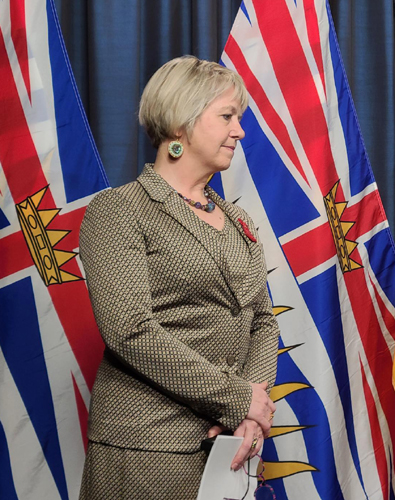
If people decide to stay away from small family gatherings or crowded events, she hopes that will ‘be okay’ now in a social-emotional sense. She called that a “key thing that we have in our control now as we go back to normal interactions in many different settings”.
She suggests staying away from people who are at greater risk of infection (like older seniors or people with compromised immune systems), but to make that okay between people.
Afterall, COVID is here to stay. Dr Henry says the seasonality of the COVID-19 virus is still undetermined. It may come and go with the usual respiratory season (in which influenza and RSV are present — usually October through March each year), or it may emerge with a pattern of its own.
COVID infections continue:
Meanwhile, COVID infections in BC do continue. As shown in data from the BC Centre for Disease Control (BC CDC) there are more cases of SARS-CoV-2 in the overall population now than at any point in the 2022/23 respiratory season (from Aug 28, 2022 to April 1, 2023).
Infections are generally milder and not landing people in hospital now that hybrid immunity (from vaccinations and natural infection response) is strong. People who are not at all immunized do still have the more serious infections from COVID, said Dr Henry.
The incidence of COVID infections in children peaked in November and December 2022, while RSV in children peaked in late December 2022 and January 2023. Pediatric hospitals were dealing with overload as early as the beginning of November.
Influenza peaked in the overall population in November and December 2022.
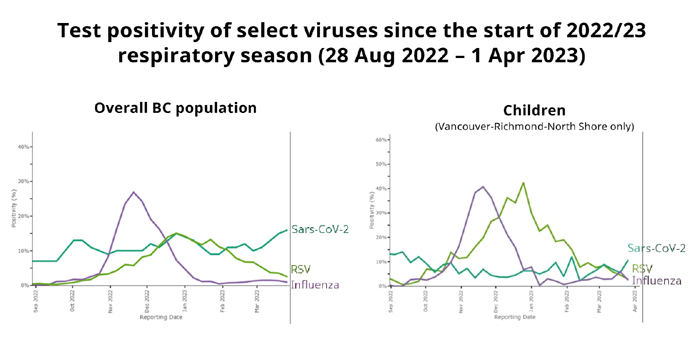
Measures in public spaces:
The measures that were put in place when “there wasn’t vaccination and there wasn’t immunity” — such as plexiglass barriers, acute attention to ventilation (including how people moved through stores and other public spaces), and wearing masks (including by mandate) — are no longer required. “But it doesn’t mean everyone has the same degree of risk,” said Dr Henry today. She listed off people who don’t have strong immune systems and may not respond as well to the vaccine. She says people should continue to wear a mask if they enter a situation where they are concerned.
Did COVID make any permanent changes in people’s behaviour? Dr Henry today said she hopes people don’t go back to shaking hands, she prefers the fist bump. “But these are things some people feel very strongly about. “I think we can go back now to many of these rituals and ceremonies that we have been putting off for the last little while,” Dr Henry said in the media session today.
“Absolutely we need to continue to pay attention to ventilation and indoor air quality, and we’ve learned something about that.” She noted that “We need to keep working with the schools, for example, to keep working on upgrading of ventilation systems in every school in the province,” said Dr Henry today.
Long COVID:
“We’re learning as we go with this. There’s post-COVID syndrome that for some people is very debilitating and for some people lasts a long time,” said Dr Henry today. She said there will continue to be long-COVID clinics — mostly virtual — which continue to provide therapy and support.
“Globally we’re working out the different types of long-COVID syndrome,” said BC’s top doctor. “We’re learning that vaccinations do make a big difference,” she said, adding that “we’ve seen less of (long-COVID) in the past year”.

“Most people get better over time, but they need to be supported,” said Dr Henry. She said that testing and supports will continue and be available around the province.
Minister Dix said the funding for the COVID support network has been made permanent. What changed in really a short period of time from Fall of 2022 to the announcement in 2023 was the number of people presenting to those clinics across the province. There were only a few locations. The number of referrals went from about 750 down to 80, Dix said today. So that sensibly leads to a “change in organizing the health care response”.
BC was the first province to put in a network of care around long-COVID, said Dix. It will continue to be in the health care system budget.
Care will be “organized centrally, which allows for delivery of care everywhere in the province”, he said today.
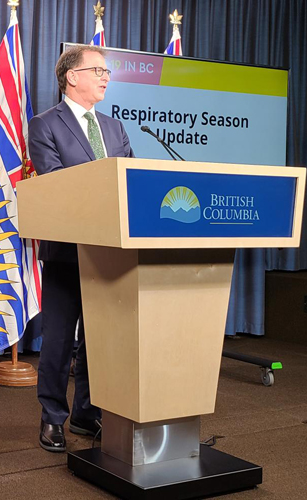
“There was some discussion around the existence of clinics and whether systems should stay the same,” said Minister Dix. “It obviously doesn’t stay the same when the number of new referrals drop by nearly 90 percent. But the care is there, and there’s continuing care to be provided to thousands of British Columbians through that network.”
He said that for any system of care delivery to be effective it has to be effective everywhere “and has to be based on a strong primary care system and a strong team-based care across the province, supported by that network of expertise”.
“We’re learning more every single day (about the ongoing impact of COVID-19 on some people who are dealing with that). And so we want the best evidence and the best possible information available. That is what the core of what we do,” said Dix, confirming that the long-COVID network of care has become a permanent item in the health care budget.
Spring booster program:
Beginning this week, the spring booster vaccine program is available to provide a boost of immunity for people at the highest risk of severe illness or hospitalization, including those over 80 or immune compromised. The new booster will help to maintain and lengthen protection against severe outcomes of COVID-19, especially hospitalization and death.
“We also continue to encourage everyone six months and older to get immunized with a primary series and, if eligible, a booster dose, including anyone 18 and over who has not yet received a bivalent booster dose,” said Dr Henry today.
“Appointments are available across the province at pharmacies and public health clinics and can be made by going to the Get Vaccinated website or phoning 1 883 838-2323.
“Individuals who have not yet been vaccinated are at a higher risk of contracting and spreading infectious diseases and having a more severe illness with COVID-19. We strongly encourage all individuals to receive their primary series of vaccinations as soon as possible and to consider receiving a bivalent booster if they have not already done so,” it was stated by the Health Ministry today.
Masks no longer necessary:
Today Dr Henry announced that masks will no longer be required for visitors to long-term care facilities. She asks for people’s patience and kindness as everyone adjusts to this new scenario.
Health-care workers will also no longer be required to wear masks in the workplace, but will continue to use discretion about safety risk in various situations.
“Effective today, important changes have been made to the restrictions that were previously put in place by PHO orders and ministerial guidance. In particular, visitor restrictions in long-term care, assisted living, and health-care facilities have been lifted. This includes the requirement for proof of vaccination to enter long-term care, assisted living, and health-care facilities, which is no longer in effect. Rapid antigen testing in long-term care is no longer required. Furthermore, universal mask-wearing by all staff and visitors in health-care facilities is no longer mandatory.”
“These changes signify a step forward in returning to pre-pandemic operations in long-term care, assisted living, and health-care facilities while continuing to maintain a safe environment for all. However, there will still be some situations where masks will be required in health-care settings or situations where they have always been required to protect high-risk patients against respiratory transmitted infections and protect workers against high-risk exposure to infectious diseases.”
BC Green response:
B.C. Green deputy leader Dr. Sanjiv Gandhi released the following statement in response to today’s respiratory illness season update and the removal of the mandatory mask mandate in hospitals and health care settings:
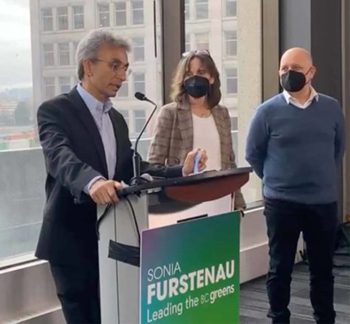
“Once again, today the B.C. Ministry of Health and B.C. Public Health failed to acknowledge the detrimental, ongoing impact of the COVID-19 pandemic. In British Columbia, we have removed all public health protective measures, restricted broad access to further vaccinations, and limited the use of available medications to treat active infections. Today, the one remaining public health order still in place, mandatory universal masking in healthcare settings, intended to protect the most vulnerable in our society, was also removed.”
The airborne aspect of SARS-CoV-2 infection has been sidestepped by BC Health from the beginning. Dr Gandhi says there is “no recognition of the systemic and potentially destructive nature of the SARS-CoV-2 virus nor the airborne spread of this disease”.
“No uniform clean air policies were discussed,” it is stated in the BC Greens statement on the removal of mask mandate in health care settings regarding the BC Health announcement today.
Dr Gandhi says “healthcare professionals are now encouraged to return to work even if they have active COVID infections”.
Looking to fall 2023:
“It’s important to recognize that COVID-19 is still with us, and as such, we must remain vigilant and continue surveillance to monitor the situation,” said Dr Henry today. “As we approach the next respiratory season, we will be prepared to consider measures that may be necessary to ensure the safe functioning of our health-care system, including potentially reinstating some of the current measures.”
Dr Henry has mentioned this before, but seems hopeful that a ‘pan vaccine’ — a product that would help a person’s immune system combat the presence of a range of viruses — will come at reasonable future time.
===== GOVERNMENT LINKS:
Provincial health officer’s, minister’s statement on end of respiratory season, spring COVID-19 boosters (April 6, 2023)
===== ABOUT THE WRITER & ISLAND SOCIAL TRENDS:
Mary P Brooke is the editor and publisher of Island Social Trends as published daily at islandsocialtrends.ca.
She has been covering politics, business, education and communities through a socioeconomic lens since 2008 on south Vancouver Island (previously as West Shore Voice News, and before that both Sooke Voice News and MapleLine Magazine).
Ms Brooke followed and wrote extensively about the COVID pandemic during 2020-2022, and continues to follow the topic as new developments arise.
Among other qualifications, Ms Brooke holds a health sciences B.Sc.
ARCHIVES: POLITICS | EDUCATION | HEALTH | COVID
HOW TO SUBSCRIBE to ISLAND SOCIAL TRENDS: Free ENEWS | Premium Subscriber/Sponsor







